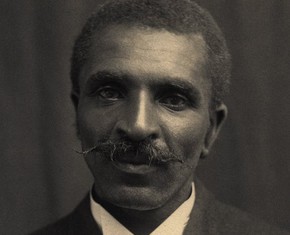The views expressed in our content reflect individual perspectives and do not represent the authoritative views of the Baha'i Faith.
You will know that the divine is so great and of such a nature that it sees and hears everything at once, is present everywhere, and is concerned with everything. – Socrates
Know thou, moreover, that the Word of God — exalted be His glory — is higher and far superior to that which the senses can perceive, for it is sanctified from any property or substance. It transcendeth the limitations of known elements and is exalted above all the essential and recognized substances. It became manifest without any syllable or sound and is none but the Command of God which pervadeth all created things. It hath never been withheld from the world of being. It is God’s all-pervasive grace, from which all grace doth emanate. It is an entity far removed above all that hath been and shall be. – Baha’u’llah, Tablets of Baha’u’llah, pp. 140-141.
From a Baha’i viewpoint, one might understand the Platonic “forms” or “ideas” as the words of God.
If we parse more carefully this concept of the Word of God, we conclude at its simplest level that words function as containers of ideas or “information.” With the increasing dominance of information technology in our lives, the organizing and creative power possible in information would seem obvious. However from a physics point of view, the connection between information, life and the rise of order is only now beginning to be understood. Part of the struggle involves developing rigorous definitions for “information” which are consistent with our intuitive understandings. In the past, the father of information theory, Claude Shannon, related entropy or the rise of ‘disorder’ to information. However, more recently a new definition of information has been developed by Adami. He defines it as “anything, which can give one the ability to predict an outcome better than chance.” Using this definition permits a better linkage to biological systems, which use the information inherent in DNA to generate order and growth.
Adami argues that this “information” is the real commodity of evolutionary biology. The better an organism models its environment, the more chance it has of passing on its genes. The process of reflecting or adapting to the environment drives evolution. This concept has echoes of the mystical idea that we are “mirrors” of God and the universe.
Doth thou reckon thyself only a puny form when within thee the universe is folded? – Imam Ali.
He hath entrusted every created thing with a sign of His knowledge, so that none of His creatures may be deprived of its share in expressing, each according to its capacity and rank, this knowledge. This sign is the mirror of His beauty in the world of creation. – Gleanings from the Writings of Baha’u’llah, p. 262.
We still stand on the threshold of understanding the deep connections between the origin of order and information inherent in the laws of nature. Again in the Tablet of Wisdom, Baha’u’llah makes another important statement relevant to the origin of order. He also here seems to steer away from the strictly rationalist approach of Plato. Plato famously believed that all knowledge could be arrived at by direct application of the intellect and that this was superior to observation.
Look at the world and ponder a while upon it. It unveileth the book of its own self before thine eyes and revealeth that which the Pen of thy Lord, the Fashioner, the All-Informed, hath inscribed therein. It will acquaint thee with that which is within it and upon it and will give thee such clear explanations as to make thee independent of every eloquent expounder. – Baha’u’llah, Tablets of Baha’u’llah, pp. 141-142.
In this paragraph Baha’u’llah emphasizes the core idea of empiricism, and illustrates where one might see a fundamental break with the Platonic approach. He advocates for observation of nature as the basis for deductions, not just the theory of forms. Then, in the next paragraph, Baha’u’llah goes on to modify the standard supernatural theory of creation:
Say: Nature in its essence is the embodiment of My Name, the Maker, the Creator. Its manifestations are diversified by varying causes, and in this diversity there are signs for men of discernment. Nature is God’s Will and is its expression in and through the contingent world. It is a dispensation of Providence ordained by the Ordainer, the All-Wise. Were anyone to affirm that it is the Will of God as manifested in the world of being, no one should question this assertion. It is endowed with a power whose reality men of learning fail to grasp. Indeed a man of insight can perceive naught therein save the effulgent splendor of Our Name, the Creator. Say: This is an existence which knoweth no decay, and Nature itself is lost in bewilderment before its revelations, its compelling evidences and its effulgent glory which have encompassed the universe. – Ibid., p. 142.
In this paragraph he breaks with the standard religious narrative, which places supernatural forces as the immediate cause of creation. Here he states that, “Nature” creates by virtue of its association with the divine name “Creator.” While the ultimate cause of creation is still the divine, its immediate cause is “Nature.”
These two paragraphs also form the backbone of the Baha’i principle of harmony between science and religion, a principal explicitly enunciated by Abdu’l-Baha:
The third principle or teaching of Baha’u’llah is the oneness of religion and science. Any religious belief which is not conformable with scientific proof and investigation is superstition. – The Promulgation of Universal Peace, p. 107.
These passages ask the followers of Baha’u’llah to always return to the benchmark of the empirical observation of nature, and be prepared to subject their interpretations of scripture to the rigors of experimental observation. Ultimately the Baha’i teachings treat Nature as another “book” of God.
A deeper study of Baha’i epistemology, as elaborated by Abdu’l-Baha, reveals a practical viewpoint that values both rationalist and empirical approaches to knowledge. However, Baha’is understand that neither approach can remain absolutely free from error. In Abdu’l-Baha’s analysis, the only error-free species of knowledge comes from what he terms the “grace of the Holy Spirit.” In all cases, the way to true knowledge, both spiritually and scientifically, comes from objectivity or detachment. In the opening verse of Baha’u’llah’s Book of Certitude he says:
No man shall attain the shores of the ocean of true understanding except he be detached from all that is in heaven and on earth. – p. 3.
Next: Why Science and Spirituality Must Advance Together
















Comments
Sign in or create an account
Continue with Googleor